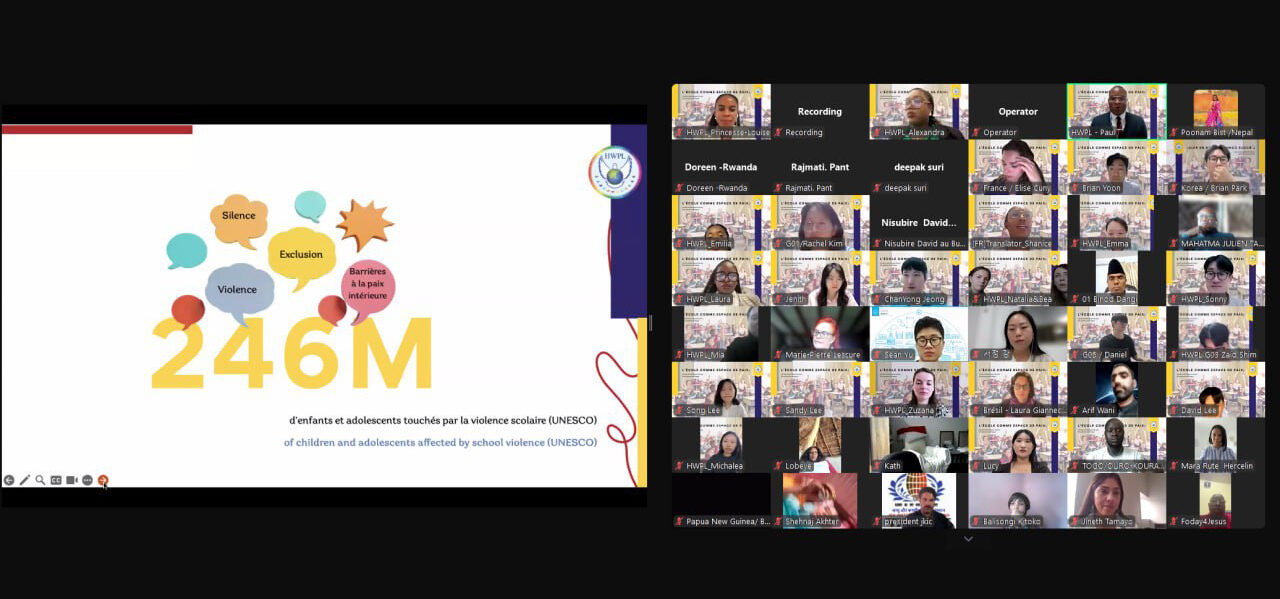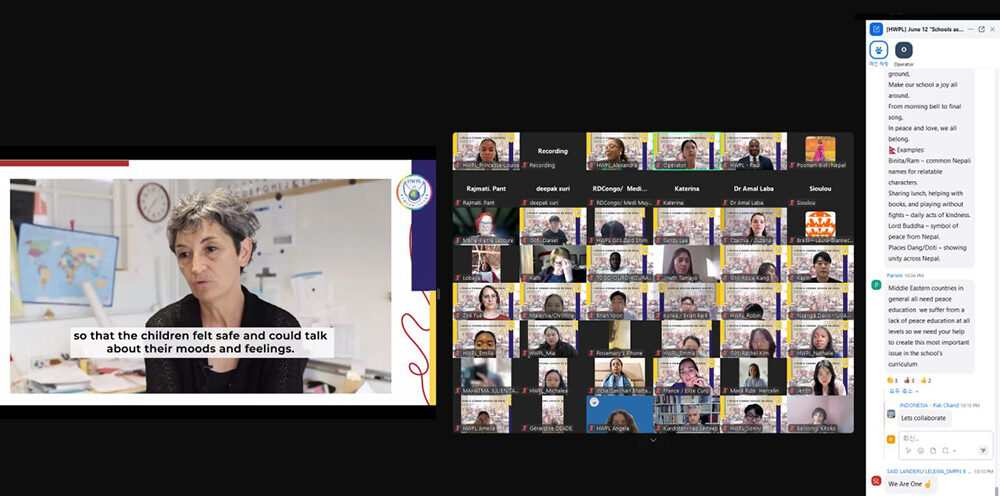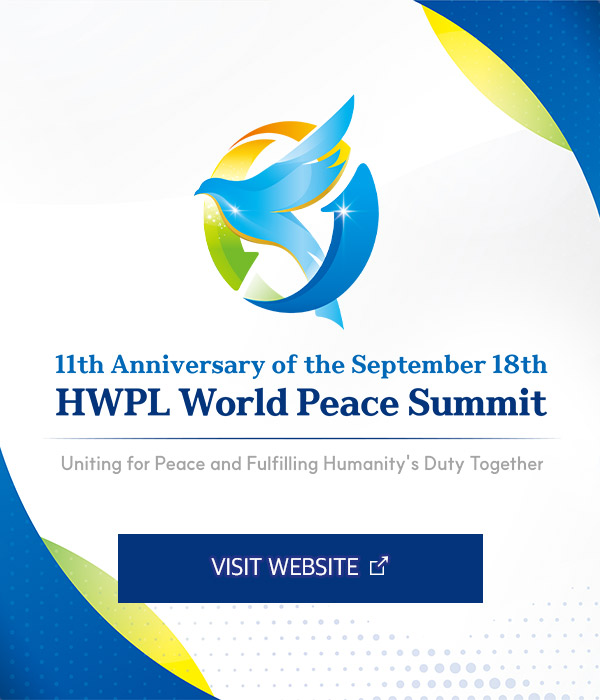Schools as Spaces of Peace – Preventing Violence and Promoting Global Citizenship

On June 12, HWPL hosted an international event titled, “Schools as Spaces of Peace – Preventing Violence and Promoting Global Citizenship,” together with the Permanent Delegations of South Sudan, Libya, Burundi, Yemen, and Togo to UNESCO, and the National Commissions for UNESCO of Jamaica, Equatorial Guinea, Central African Republic, Congo, and the Democratic Republic of the Congo. The online event was also hosted together with the Center for Advanced Studies in Education and Sustainable Development (CLADE), the Latin American Campaign for the Right to Education, and UNESCO Artists for Peace.
Approximately 300 key figures in the field of education attended the event. HWPL’s major initiative of peace education and UNESCO’s core focus areas—global citizenship education, human rights, and the development of a culture of peace—were discussed. The importance of global participation and the need for practical activities, as demonstrated by national case studies, were particularly emphasized.

“HWPL’s belief is simple: building lasting peace begins early. Peace must become a shared language and like any language, it can be taught, learned, and practiced,” said HWPL France Managing Director Marc d’Almeida in his opening remarks. “Through curricula, safe and inclusive school environments, well-trained teachers, and an education system that embraces diversity, schools can, and must become spaces where students not only learn to read and write, but also to understand, to collaborate, and to resolve conflict peacefully.”
The Democratic Republic of the Congo, Cyprus, and Libya shared examples of implementing peace education in their national schools, highlighting the tangible need for peace education.

Additionally, during the roundtable discussions, practical cases of peace education through cultural diversity were shared.
“Violence is simply the expression of an inner suffering,” said Mara Rute Hercelin, CEO of CLADE, who presented a short video of educational activities. “By taking care of one another, we can establish peace — in our hearts and in the world.”
Various ways for schools to become spaces of peace were discussed at the event, including solutions to current issues, such as bullying.
The event concluded with participants urging for support for the “Supporting Statement for the Promotion of a Culture of Peace and the Implementation of Peace Education,” aimed at ensuring that peace activities in schools go beyond sharing examples and lead to concrete actions.


















